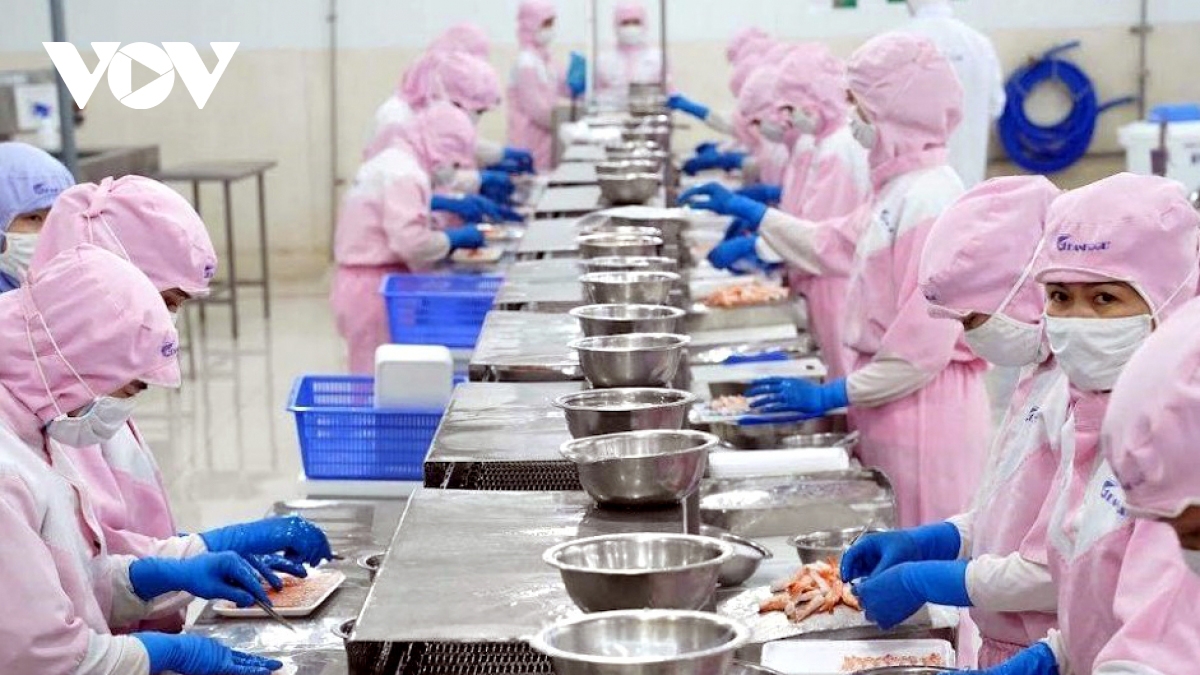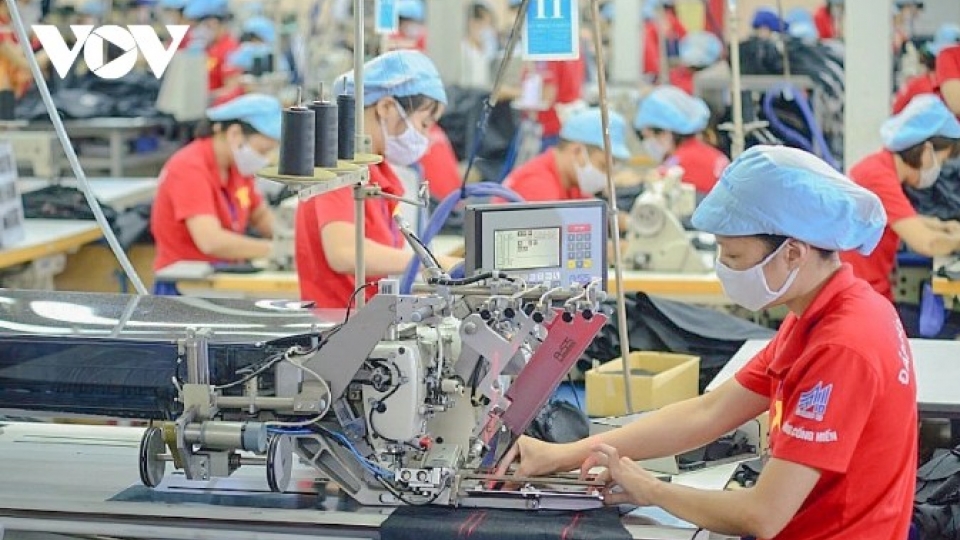Positive signal from To Lam-Trump phone call for tariff reduction
VOV.VN - The April 4 phone call between Party General Secretary To Lam and US President Donald J. Trump on tariff reduction has been hailed by economic experts, businesses, and industry associations as a positive step toward stronger Vietnam–US trade ties.

During the conversation, which focused on bilateral and trade ties, To Lam affirmed Vietnam’s readiness to work with the US toward reducing import tariffs on US goods to 0%. He also proposed that the US apply a similar rate to goods imported from Vietnam, continue importing essential Vietnamese products, and encourage US companies to step up investment in Vietnam.
Experts and business associations alike viewed the dialogue as highly encouraging and voiced optimism about future progress in trade and investment cooperation between the two nations.
According to Le Hang, Deputy Secretary General of the Vietnam Association of Seafood Exporters and Producers (VASEP), the US is currently one of Vietnam’s largest seafood export markets, accounting for around 20% of total export value, which ranges from US$1.7 billion to over US$2 billion annually.
Key export items include shrimp and tuna, which top the list, while Tra fish (Pangasius) ranks second. As such, the April 4 phone call is seen as a source of fresh hope for Vietnam’s seafood sector.
“This is an extremely positive signal for Vietnamese seafood enterprises. The seafood business community and the business sector as a whole highly appreciate and is truly grateful to the Party and Government. The Party General Secretary’s initiative to place the call marks a turning point. We hope this will prompt the US administration to adopt more favorable tariff policies toward Vietnam,” Le Hang said enthusiastically.
She expressed hope that the US would reduce tariffs on Vietnamese goods, especially seafood to the lowest possible level.
“In terms of trade, seafood products from Vietnam and the US are largely complementary. This presents a clear opportunity for the Vietnamese Government to negotiate specific tariff lines with the US, including those related to seafood,” she noted.
As a representative of the logistics sector, which advises on policy and provides logistics/supply chain solutions, Tran Chi Dung, Secretary General of the Vietnam Logistics Business Association (VLA), praised the General Secretary’s prompt action in proposing negotiations to bring tariffs down to 0%.
“There has been a quick and consistent response from both the Party and Government leadership, grounded in Vietnam’s long-standing commitment to open and equitable international cooperation. We are very encouraged and have already begun considering concrete steps, not merely to defend against higher tariffs, but to actively work toward fair trade. This also creates an opportunity to optimize goods and capital flows, analyze value chains, and enhance supply chain transparency,” Dung said.
The initiative to reach out directly to President Trump was lauded by experts, who believe it could accelerate negotiations on tariff reductions for specific sectors and improve the overall outlook for investment and stock markets.
“Essentially, both sides are open to dialogue. Even when Trump introduced new tariffs, he made it clear that countries shouldn’t rush to retaliate and that the US was ready to negotiate. So, Vietnam’s proactive move is a very positive sign. Other countries are doing the same. I believe that once the two sides sit down for talks, the final tariff rates could be far lower than the initial proposals,” said Associate Professor Pham The Anh, Dean of the Faculty of Economics at the National Economics University.
Echoing this view, economist Dr. Le Dang Doanh also praised the April 4 phone call between Party General Secretary To Lam and President Trump.
“President Trump himself wrote on Truth Social that he was pleased with the very constructive discussion he had with General Secretary To Lam. Both sides agreed to continue talks to resolve emerging trade issues. Hopefully, this phone call will lead to productive negotiations that yield mutually beneficial outcomes. It sets the stage for positive and goodwill-driven negotiations between Vietnam and the US,” Dr. Doanh said.





